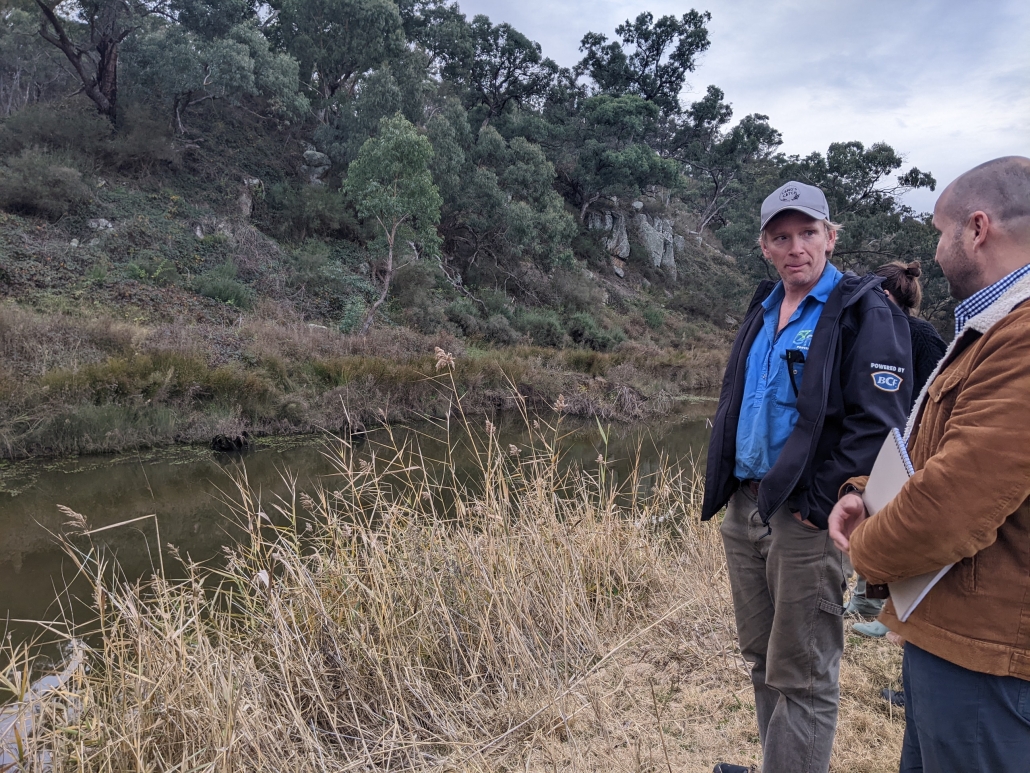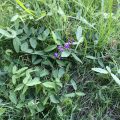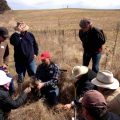Got WEEDS?
Published 12th October 2024. Written by Maddison O’Brien
Riparian areas are essential to the health of our rivers and ecosystems, but problem weeds like blackberries, invasive willows and Hemlock can wreak havoc on these fragile environments. Landholders, farmers, and community members are invited to a special workshop on managing riparian weeds on Tuesday 22nd of October.
This workshop is hosted by Watershed Landcare as part of the Wildlife Waters project, supported by OzFish. The project focuses on education and on-ground works to enhance riparian health and native fish habitats along the Cudgegong River and Lawson Creek. Initiated after eDNA testing identified diverse native fish species, Wildlife Waters emphasises the importance of protecting these ecosystems for future generations.
Set against the beautiful Cudgegong River near Rylstone, the workshop promises practical demonstrations, expert advice, and a hands-on approach to tackling weeds. As Maddi from Watershed Landcare explains, “Our goal is to provide landholders with the skills, knowledge and connections they need to make informed choices about managing weeds on their property.”
Sean Graham from OzFish will lead a drill-and-fill workshop targeting invasive willows, an ongoing problem along the riverbanks. Participants will learn how to efficiently remove these problematic species while minimising harm to the surrounding environment. A planting day at this location to replace the willows with native trees and shrubs will take place in early 2025.

Sean Graham from Ozfish & land custodian Will DeBeaurepaire discussing ways to improve fish habitat along the Cudgegong River, where the workshop will be held.
Claudia Wythes from Local Land Services will share essential information and resources on priority weeds, providing practical advice on how to identify, manage, and control them sustainably. Mike from Dry Creek Farm will introduce alternative methods to control weeds without chemicals, offering insight into his successful use of goats and mechanical methods to keep weeds at bay. “By working with natural processes, we can reduce our reliance on herbicides and promote healthier soil and ecosystems,” Mike says.
An exciting feature of the event will be a drone spraying demonstration by Data Sense Technology. This innovative approach to weed management allows for precision application of treatments, reducing waste and environmental impact. “Drone technology offers a highly targeted way to tackle weeds, especially in hard-to-reach areas,” Maddi points out.
Weed management offers both agricultural and ecological benefits. For farmers, controlling invasive weeds improves pasture productivity, increases crop yields, and reduces competition for native species regeneration. Over time, early intervention can lower costs and labour involved in managing weed infestations.
For the environment, effective weed control promotes biodiversity, protects native plants, and provides healthier habitats for wildlife, fish, birds, and pollinators. It also helps prevent soil erosion and landscape degradation.
Morning tea and lunch will be provided in a scenic riverside location, offering an opportunity for networking and further discussion. Whether you’re a landholder or simply passionate about preserving local ecosystems, this workshop is an invaluable opportunity. To register go to watershedlandcare.com.au







